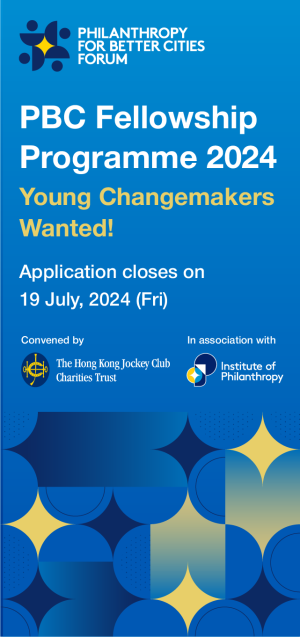Reimagining Philanthropy in the Global South is a bit like the arrival of a letter you knew must be on its way, but took a long time to get there.
The editors have put together this long-awaited letter from the field with an academic framing, curating a group of authors practising, researching, and advising on philanthropy with an in-depth understanding of strategic philanthropy and of a respective country or region in Africa, Asia and Latin America. The editors have guided the authors to focus on three challenges in a post Covid-19 world: ‘building networks, effective partnerships, and institutional resilience’.
The book needs to be read, as the editors point out in their introduction, with Covid-19 and the changes it brought about as an amplifier ‘that philanthropy was not empowering its recipients enough, with too many micro decisions about the allocation of funding taken remotely rather than by the communities in need. At a macro level, concerns were raised about the absence of co-funding and collaboration in the sector and the missed opportunities’. The book’s ten chapters are testimony to how philanthropy in the global south found and finds solutions to these broader challenges, drives social impact but also moves within a familiar framework.
Naina Subberwal Batra’s article ‘From Transactional to Transformational’ discusses AVPN’s learnings as an ecosystem’s builder for philanthropy and beyond in Asia. It is a thought-provoking piece aimed at ‘identifying and articulating the true value of the network’. Everybody interested in how a network organisation can ensure that one plus one is more than two should read about the three AVPN pillars of ‘connect, learn, act’.
In ‘Building Effective Philanthropy through Strategic Partnerships’ J Satrijo Tanudjojo describes how Indonesia’s Tanoto Foundation scaled its early childhood education in a time of crisis. It highlights their focus on lowering stunting rates, and work on education leadership in collaboration with international partners and the government. The article ends with a sincere reflection of the realities of the foundation’s work, exemplified in the results of their own learning of what strong strategic partnerships require. It is encouraging to read that in the chapters of this publication the success factors for successful partnerships are very similar.
In ‘Gender-Based Violence in South Africa and Multi-Stakeholder Partnerships’, Takalani Netshitenzhe explores how Vodacom and its Vodacom Foundation South Africa have since the early 2000s, and all through the pandemic, evolved their strategies and partnerships against gender-based violence. This case shows how business can contribute with more than just money to standing up to a societal challenge together with civil society and government.
Maysa Jalbout’s and Katy Bullard’s article, ‘Philanthropy in Emerging Economies’, is a more analytical piece. For myself, it highlighted their systematic analysis but also illustrated what resilience means in philanthropy and how this resilience can be strengthened in emerging economies. Their list of challenges and trends in philanthropy in emerging economies is a compass for the sector that can be applied by philanthropy right away.
These four examples show how the book maps out the diversity of philanthropy in the global south, contributes to a better understanding of its drivers and sets an agenda for philanthropy philanthropy the world over. One thing about this book puzzles me: the strategic concepts of partnerships, impact and resilience described in it are not that new.
Is this because that letter was delayed?
Michael Seberich is Managing Director of Wider Sense. Email seberich@widersense.org
Reimagining Philanthropy in the Global South – From Analysis to Action in a Post-COVID World,
Clare Woodcraft, Kamal Munir and Nitya Mohan Khemka (eds) (2024), Cambridge University Press.




Comments (0)